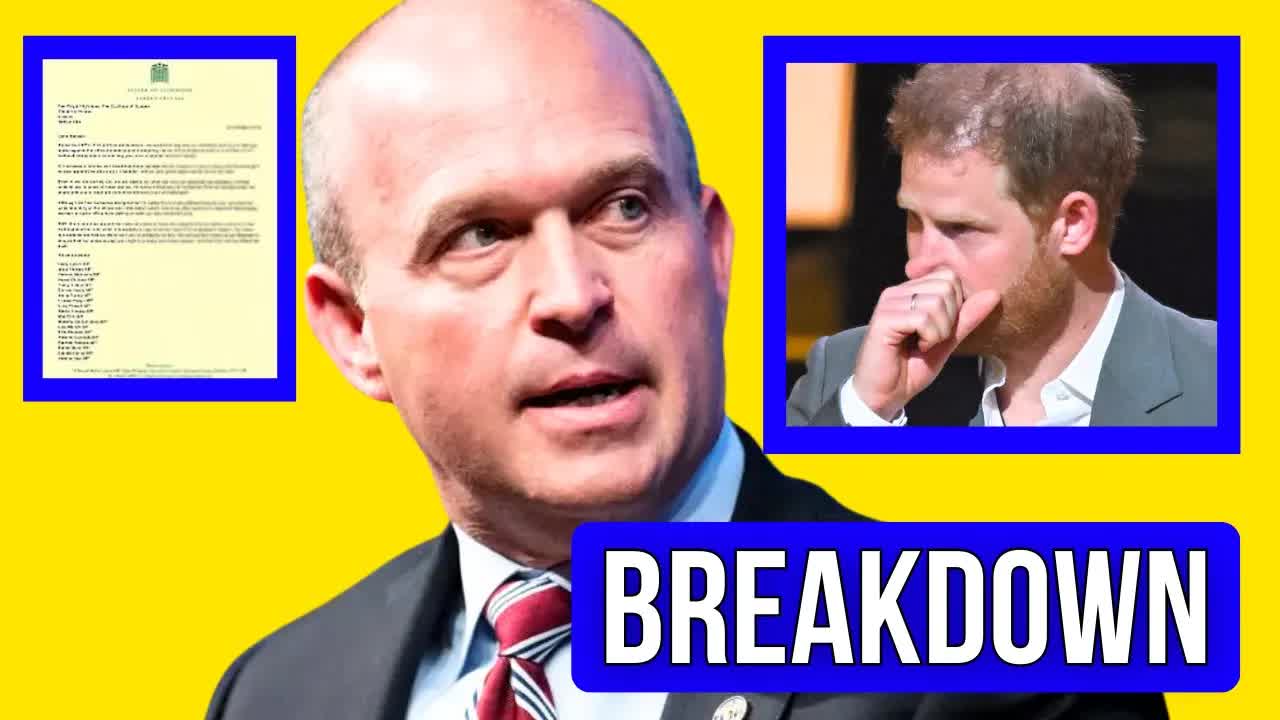In a striking move, the CEO of the Heritage Foundation has publicly challenged Prince Harry regarding the legitimacy of his U.S. visa.
This conservative think tank, known for its outspoken views on immigration and accountability, has raised concerns that the Duke of Sussex may have hidden past drug use during his visa application process.
The organization is now demanding transparency, igniting a media frenzy that intertwines royal affairs with political scrutiny.
The crux of the Heritage Foundation’s allegations revolves around the possibility that Prince Harry, who has openly spoken about his previous drug use, failed to disclose this crucial information on his visa application.
Such omissions are serious, as immigration law mandates full disclosure, and violating this requirement could lead to severe consequences, including deportation.
Legal experts are weighing in, noting that misrepresenting facts on visa applications can be a significant legal misstep.
However, the situation becomes murky when considering the unique status of high-profile individuals like Prince Harry.
His celebrity status could potentially impact how immigration laws are enforced in his case, raising questions about equality before the law.
As the story unfolds, it reveals deeper issues within the legal system and how it interacts with fame and privilege.
Social media has erupted in response to the allegations, with opinions sharply divided.
Supporters of the Heritage Foundation argue that the law must apply equally to all, regardless of status.
One Twitter user succinctly posed the question: “Why should he get a pass just because he’s a prince?” This sentiment resonates with many who advocate for strict adherence to immigration regulations.
Conversely, critics view the Heritage Foundation’s actions as a politically motivated attack on Prince Harry, perceiving it as an attempt to tarnish his reputation.
This latest controversy adds to the ongoing narrative surrounding the Duke, who has faced numerous challenges since stepping back from royal duties.
His silence on the matter only fuels speculation, leaving many to ponder whether his lack of response signifies acknowledgment of the claims or a deliberate choice to remain above the fray.
The implications of this controversy extend far beyond Harry’s personal situation.
It raises essential questions about celebrity privilege and accountability in the legal system.
Society grapples with the notion that public figures should be held to the same standards as everyone else, regardless of their wealth or status.
This incident serves as a reminder of the ongoing tension between public fascination with royalty and the expectation of legal compliance.
Legal experts caution that if allegations of undisclosed drug use on Harry’s visa application are substantiated, he could face serious repercussions.
Yet, his high-profile nature complicates the potential outcomes, leading some to wonder whether the U.S. immigration system will uphold its rules impartially or bend under the weight of celebrity influence.
This scandal adds another layer to Prince Harry’s already complex relationship with the media and the public.
From his tumultuous departure from the British royal family to his ongoing battles with tabloid scrutiny, every aspect of his life is under constant examination.
The Heritage Foundation’s demand for clarity not only scrutinizes his immigration status but also critiques the broader issue of accountability for public figures.
As this situation continues to unfold, it stirs intense debates and keeps audiences engaged.
Will the demand for transparency lead to tangible legal challenges, or will it dissolve into yet another unresolved controversy?
For now, Prince Harry’s silence lingers over the issue, leaving the public in suspense as they await the next chapter in this unfolding royal saga.










